You can listen to last night's message from IMPACT by clicking right here!
0 Comments
We started a new series at IMPACT last night: FUEL. Here's a run-down of the series, including each message!
::LENGTH 3 Weeks ::DIRECTION The Christian life is filled with highs and lows, and sometimes it feels like your faith is running on empty. BUT there are certain things we can do to fuel the fire for Christ in us. During this series we’ll look at three ways to fan the flame and “gas up” for this journey called life. ::MESSAGES Part 1: Remembering (Worship) oMessage in a minute - When you feel like you’re running on empty, remember who God is, what He has done, and what He has promised to do. oText - Psalm 42 Part 2: Reading (The Word) GUEST SPEAKER oMessage in a minute - There is no fuel in this life quite like reading God’s Word – it is not just a source of information, but a catalyst for transformation. Fill up on the Word! oText - speaker’s choice. Part 3: Reaching (Evangelism) oMessage in a minute - Nothing will set you on fire and get you moving in your faith like reaching others for Christ. It is one of, if not THE most exciting experience you’ll ever have - seeing someone you love come to Jesus! oText - Acts 2 I had a great conversation with a student last week that is on her way to Jesus. In the conversation she kept coming back to the idea of good vs. bad. "I'm mostly good, and I think God only punishes bad people." "I know I do some bad stuff sometimes, but I'm a good person." This is nothing new, but I found myself really desiring some different language to frame things in. After all, at the end of the day, I don't think the Gospel is reducible to morals or "good vs. bad".
As we talked however, we got away from using those words, and made our way more towards two different words I think will forever replace good and bad in my spiritual vocabulary: Broken and whole. Because isn't the Gospel less about Jesus coming to make bad people good and more about His making broken people whole? Don't you find that when you talk about sin and the human condition in terms of bad vs. good that we tend to put degrees on it and keep score of how's bad, worse, worst, good, better, and best? When we get away from that though and start thinking of broken instead of bad, we realize that we're all inherently flawed (sin) and we're all in the same sinking boat, no scorecard needed. And thinking of the work of God in our lives as a journey toward wholeness sounds so much more appealing to me than thinking of myself as getting better (because often what I really mean is "better than you"). I love learning as much if not more from students than they learn from me. Going to wrestle with this some more and see what God is teaching me... Well, we made it there and back on our summer mission adventure with Group's Week of Hope in Indianapolis. It was a fantastic week, with lots of steps forwards for our students, and I'm so proud of every single one of them! We served in lots of different ways - clearing and planting gardens, home repair, visiting senior centers, and working with children at boys and girls clubs. I also had the (super-last-minute) privilege of leading worship, and our students did an awesome job jumping in there helping with that as well.
I'm still in recovery mode, but I'm super-grateful to God for an awesome week and how He showed Himself to us! My students and I have been having a lot of fun with Fatbooth - an app for Android and iOS phones. Whenever you're sitting around hanging with them you can start taking pictures and hilarity ensues.
I took it to the next level on the last night of our "Remade" series. I pulled some students pics off Facebook and made this video (I told a few of them - girls specifically - before the service to clear it with them and give them a heads up so they weren't caught off guard!). It was a HUGE hit! All you need to pull off something similar for your next service is the Fatbooth app, pics of your kids (check their Facebook albums!), a basic video editing program, and about an hour to pull it off. Let me know if you do! I'm so proud of our graduating seniors! This class is extra-special to me, as many of them have been a part of our ministry since they were 7th graders, which means they are my first class of graduates that I've seen all the way through middle and high school!
Emotional! Hello! Man, it's been a while since my last post, which I really regret... but it's been for good reason! Not only have we moved in to the summer - the "busy" (maybe "busiER" is a better word) season of youth ministry - and been on vacation, but one week ago we launched our new youth midweek service, IMPACT!
As you can imagine, it's been CRAZY busy getting all the moving pieces together to pull off the service and it was a HUGE success! In the next week or two I hope to bring you a virtual tour of our redone youth space, some posts about the content we're bringing to students that I'm excited about, and my ideas/vision for the future. Until then, enjoy the pic of our stage area above and know that YM Stuff isn't closed just yet! You are the light of the world—like a city on a hilltop that cannot be hidden. No one lights a lamp and then puts it under a basket. Instead, a lamp is placed on a stand, where it gives light to everyone in the house. In the same way, let your good deeds shine out for all to see, so that everyone will praise your heavenly Father. - Matthew 5:14-16
I've taught on this passage several times in youth ministry. It's a great illustration that Jesus gives regarding our responsibility to shine in the darkness. This go around I wanted to do something different though, so I set out three objects: a light bulb, a picture of the moon, and one of those glow-in-the-dark stars you can put on your ceiling. Then I went through something along these lines: Light Bulb This bulb, when illuminated, can light up a whole room. But can this bulb, by itself, produce light? No. What does it need to shine? (Answer - it needs to be plugged in to a power source.) The Moon The moon, when it's full, can be a source of light in the darkest night. But does the moon, by itself, produce light? No. What does it need to shine? (Answer - it needs to be tilted toward the sun so it can reflect its light.) Glow-in-the-Dark Star This star, when you turn off the lights, glows a comforting light. But how does this star get its glow? Does it, by itself, produce light? No. What does it need to shine? (Answer - it needs to be in the light so it can absorb it and then re-emit it as it glows.) Then you ask students something like this: now what about you? Does a human being, by him/herself, produce light? No. What do we need to shine? (We need God's presence, His power in our lives.) Then you could ask students what item they think most represents us - are we more like the bulb, needing to be plugged in to the Source of power; are we more like the moon, we need to be turned toward God so we can reflect His light; or are we more like the star, we need to be in God's presence, absorbing His light so we can re-emit it? When I did this with students, it was awesome! Object lessons can be a powerful tool to use with your group, and every time a student sees a light bulb, one of those stars, or the moon, they may remember that they are called to be the light of the world!!! Saw a great question online today from a YM friend. She was asking about keeping track of hours in youth ministry. I'm lucky in that I don't have to keep official time-sheets or anything like that in my job.
HOWEVER, there are two things I do that I consider healthy practices: #1 - I always keep my pastor and my administrator informed of what I have going on. Meetings, lunches, projects, etc. Even communicating in a general sense what I'm up to helps them to know where I'm at and lets them avoid having to give an "I don't know" or other awkward answer to the question "what is the youth minister doing?" #2 - I keep a flexible "time map". This is a basic guide to what I'm doing during the week. I break each day down in to three sections - morning (8-12), afternoon (1-5), and evening (5-9), and then assign each block the general tasks I seek to accomplish during that time. If you're interested, here's what my time map looks like: MONDAY Morning - Staff meeting, administrative tasks. ----- Afternoon - Office stuff, calendar review (long and short term), event/activity planning. ----- Evening - Family time. TUESDAY Morning - Midweek program prep/set-up, office stuff, miscellaneous ministry "to-dos". ----- Afternoon - Midweek program prep/set-up, relational time with students. ----- Evening - Family time. WEDNESDAY Morning - Message prep, reading, writing, web stuff (from home). ----- Afternoon - Midweek program "finishing touches", visioneering, "marketing" (newsletters, e-mails, FB stuff, etc.) (from home). ----- Evening - Midweek youth program. THURSDAY Morning - Small group prep, volunteer connections (from home). ----- Afternoon - Weekend worship/program prep, office stuff. ----- Evening - Flex-time (sometimes family, sometimes relational time with students). FRIDAY Morning - Flex-time (finishing up anything left to do for the weekend, from home). ----- Afternoon - Home/house stuff (cleaning, laundry, etc. - yeah, I do that stuff!). ----- Evening - Family (date with my wife!). SATURDAY Sabbath/family time ALL DAY. SUNDAY Morning - Worship/program time. ----- Afternoon - Flex-time (family, students, or meetings). ----- Evening - Program time. That's it! What does your week look like? Good words.
|
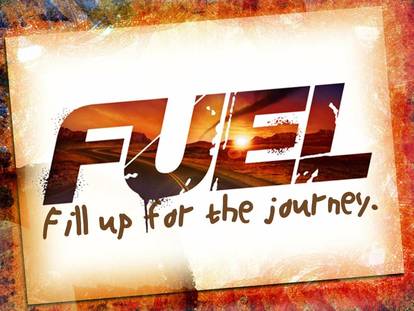
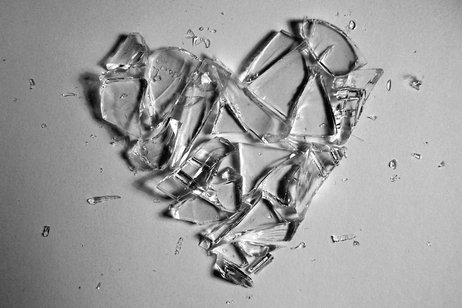
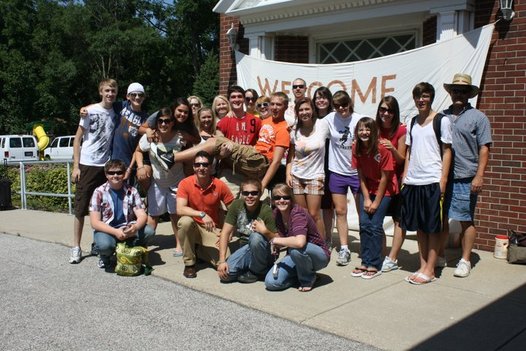
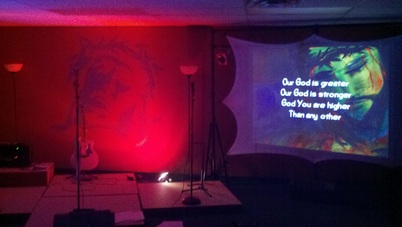
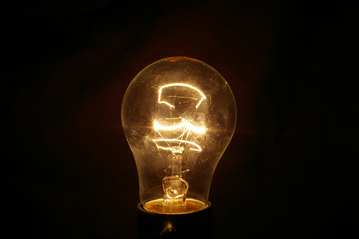

 RSS Feed
RSS Feed
